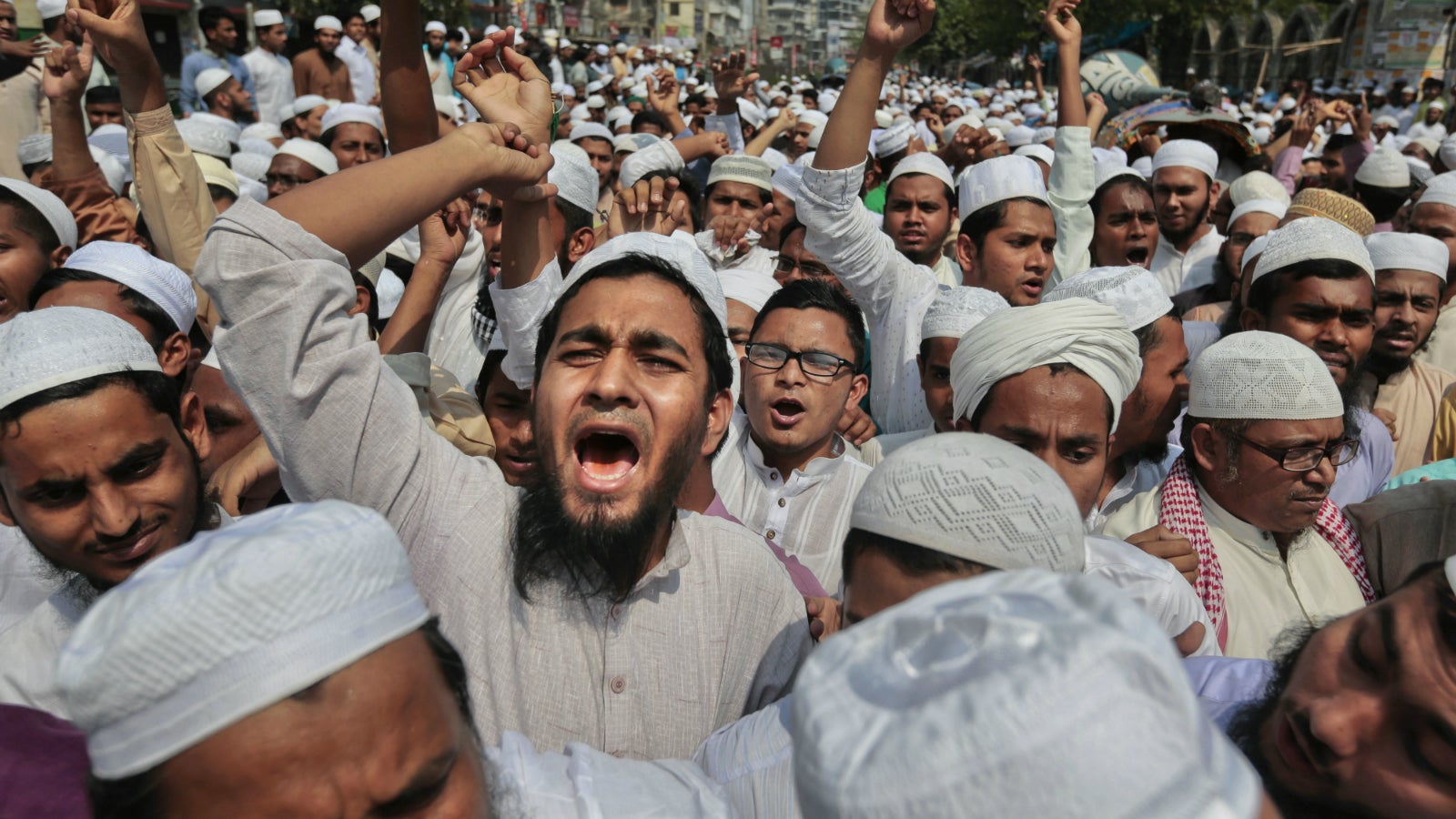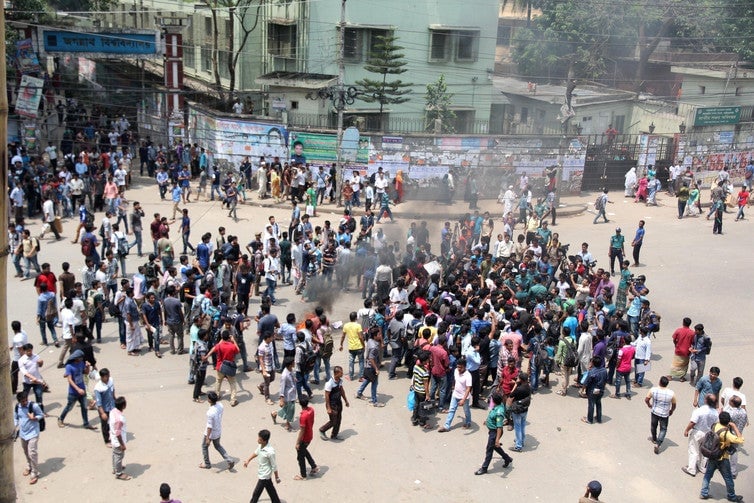The murder of bloggers and editors is proof that Bangladesh is on the brink of disaster
The murder of Xulhaz Mannan, the founder and editor of Bangladesh’s first and only LGBTQ+ magazine, Roopban, has drawn the world’s attention to the violence directed against the country’s outspoken supporters of equal rights.


The murder of Xulhaz Mannan, the founder and editor of Bangladesh’s first and only LGBTQ+ magazine, Roopban, has drawn the world’s attention to the violence directed against the country’s outspoken supporters of equal rights.
His death at the hands of six assailants sent a wave of fear through the community, and has prompted others to go into hiding.
This situation speaks to two closely connected crises. On the most obvious level, it highlights the stigma and danger faced by the LGBTQ+ community and its supporters – and at the same time, it’s part of a larger threat to rational thought and speech that has been mounting for several years.
As per Section 377 of the Bangladeshi Penal Code, homosexual intimacy is categorised as an “unnatural offence” and is punishable under the law. The statute was introduced under British imperial rule in 1860 and has remained on the books across the Indian subcontinent. The role of Roopban and other similar LGBTQ+ initiatives has included calls to repeal the law.
A similar movement in India, which resulted in temporary success in 2009, hinged on the argument that to accept non-heterosexual identites was to return to traditional, pre-colonial values: that since Section 377 was imposed under foreign colonial rule, removing it would fit into a broader push for national integrity. Historical cases of homosexuality, the legality of the third gender and the visibility of the transgender Hijra community have strengthened this line of activism.
The pro-rights narrative is a direct contradiction of the position against homosexuality, which equates it with being unpatriotic and immoral. This reflects an assumed inherent Islamic conservatism in social thinking, and opponents of changing the law are quick to point out that the country’s population is mostly Muslim.
As much of the population religiously objects to homosexuality, retaining its criminal status is considered the right thing to do. And any challenge to this way of thinking is not just controversial, but is considered disrespectful to wider sensibilities. Which is why the problem is about much more besides LGBTQ+ rights.
Attacking dissent
On the same day Mannan was murdered, a Hindu priest was also killed. The previous Saturday saw university lecturer Rezaul Karim Siddiqui hacked to death, and writer Nazimuddin Samad was killed earlier in the month. These people were all targeted for advocating and/or representing a secular society.

Bangladesh has a complicated history with religion. In recent years, this has resulted in an uneasy balance: constitutionally, Bangladesh is a secular republic, but Islam is still the state religion. This was recently reaffirmed by the Supreme Court. Extremist groups have exploited Islam’s status and the country’s demographics to further their cause.
Since 2013, at least 11 individuals have been killed specifically for voicing concern about the growing influence of Islamism. Most of them were branded “atheists” in a derogatory sense to discredit their opinions. This despite not all of them identifying with the label and despite atheism not technically being a criminal offence.
The tactic has been to misrepresent criticisms of religious prejudice as an attack on the supposedly Islamic moral character of Bangladesh. These attacks can target anything from LGBTQ+ rights and religious minorities, to justice for historical offences or any perceived promotion of secular thinking.
So while the precise motives behind the individual murders may vary, they all embody a threat to secular rationalism as a whole. At the same time, it makes it difficult for the various rights movements to unite behind a single cause without it being misconstrued as an attack on religion.
Brink of disaster
Complicating matters even further has been the distinct lack of culpability for these crimes. Despite the promise of swift action after one of the earlier blogger murders in 2013, the perpetrators of these attacks have gone largely unpunished.
This is in no small part down to craven politicking. In an attempt to court both the religious right and the secular centre, the Bangladeshi government has simultaneously condemned violence while demonising critical thinking. In her Bengali New Year address on April 14, the prime minister called the challenge to religious sentiment the reflection of a “perverted mindset”.
By perpetuating the rhetoric employed by extremist factions, the authorities have implicitly legitimised extremist claims. That they have arrested bloggers who have challenged Islam only serves to underline just how cowed they are.
To say that Bangladesh is on a precipice is no exaggeration. The sudden increase in the number of attacks already shows that the adversaries of moderation, freedom and rationalism are getting bolder. If authorities continue to remain on the sidelines, the situation can only end in disaster, and the accompanying death toll will be a grim reminder of what could have been prevented. It is vital that Bangladeshis not only fight for specific causes such as LGBTQ+ rights, but tackle the wider dangers that their country faces.
This article was originally published on The Conversation. Read the original article.We welcome your comments at [email protected].